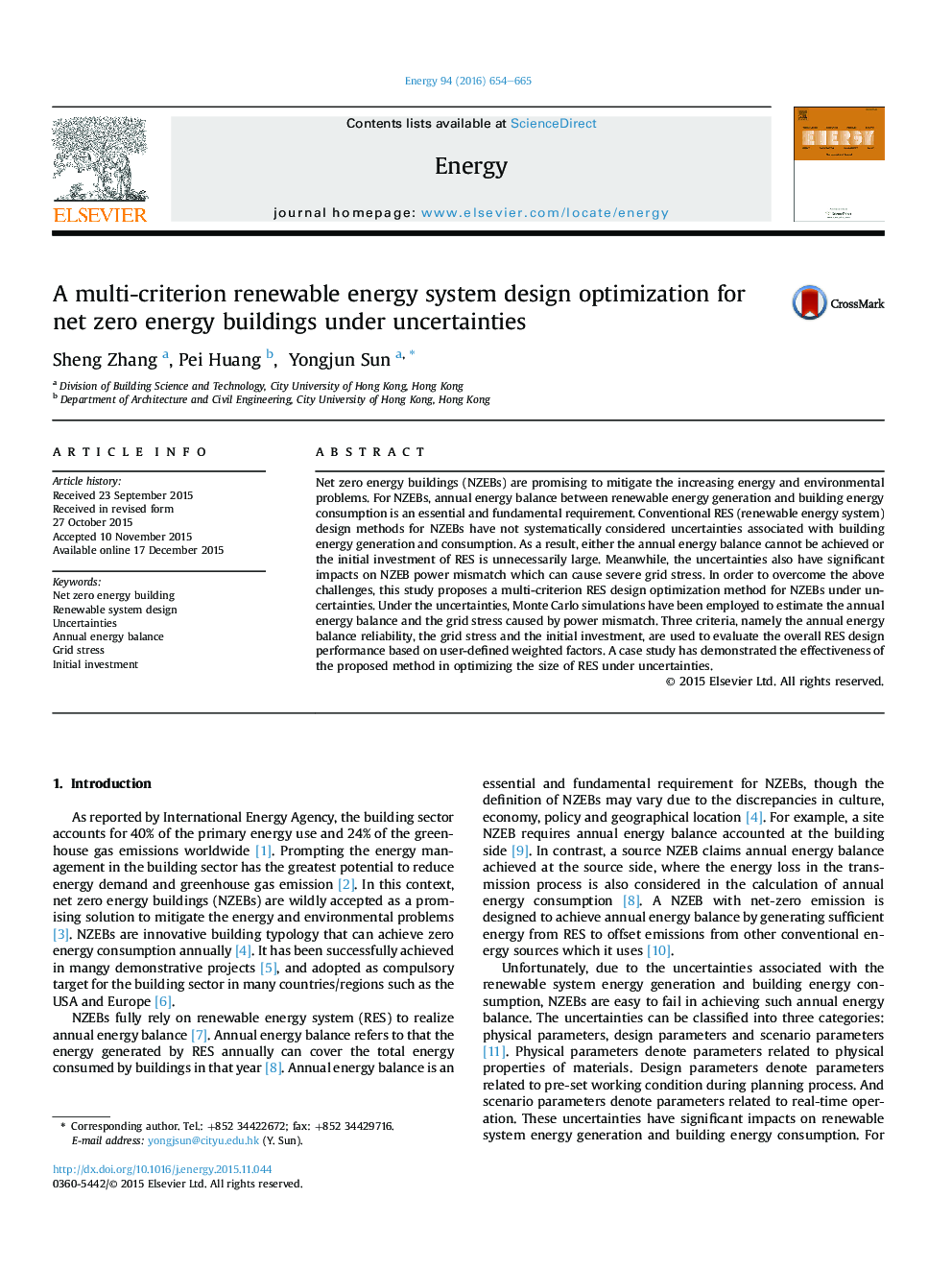| Article ID | Journal | Published Year | Pages | File Type |
|---|---|---|---|---|
| 1731220 | Energy | 2016 | 12 Pages |
•It proposes a multi-criterion NZEB renewable energy system (RES) design method.•The method considers NZEB cost effectiveness, annual energy balance and grid stress.•The method can effectively optimize RES size under various uncertainties.•The method overcomes oversized system problems from conventional design.•The method improves overall performance by 44% comparing with a conventional method.
Net zero energy buildings (NZEBs) are promising to mitigate the increasing energy and environmental problems. For NZEBs, annual energy balance between renewable energy generation and building energy consumption is an essential and fundamental requirement. Conventional RES (renewable energy system) design methods for NZEBs have not systematically considered uncertainties associated with building energy generation and consumption. As a result, either the annual energy balance cannot be achieved or the initial investment of RES is unnecessarily large. Meanwhile, the uncertainties also have significant impacts on NZEB power mismatch which can cause severe grid stress. In order to overcome the above challenges, this study proposes a multi-criterion RES design optimization method for NZEBs under uncertainties. Under the uncertainties, Monte Carlo simulations have been employed to estimate the annual energy balance and the grid stress caused by power mismatch. Three criteria, namely the annual energy balance reliability, the grid stress and the initial investment, are used to evaluate the overall RES design performance based on user-defined weighted factors. A case study has demonstrated the effectiveness of the proposed method in optimizing the size of RES under uncertainties.
